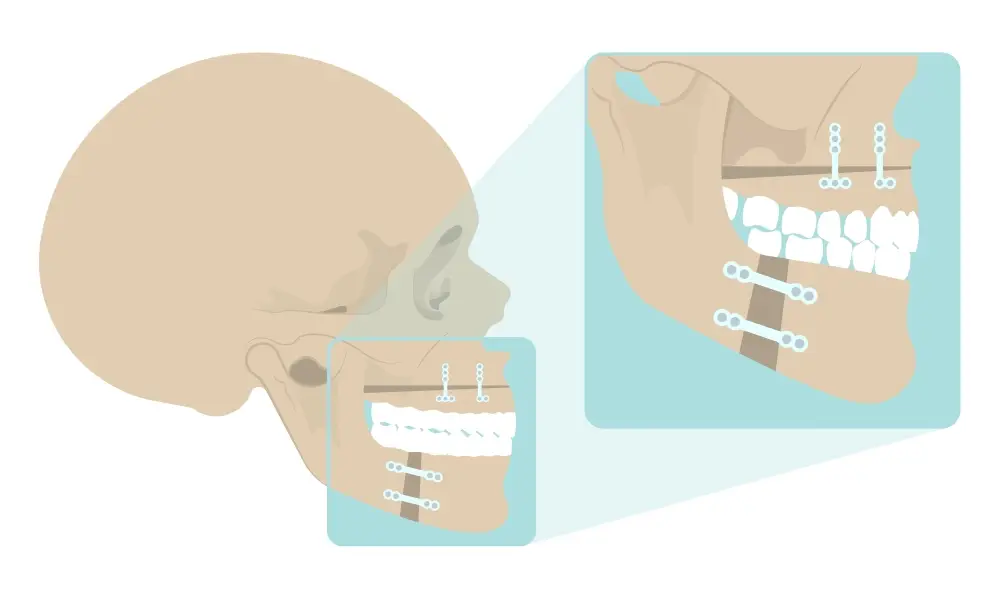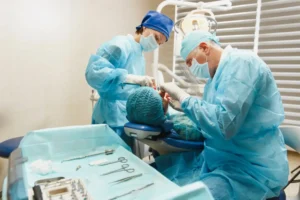If your top and bottom teeth do not meet properly when your mouth is closed, you may have an open bite. Open bite is a common orthodontic condition that can be corrected with orthodontic treatment. It occurs when the patient’s top teeth and bottom teeth don’t touch when the mouth is closed. If your case is too severe for orthodontic treatment alone, your orthodontist may suggest orthognathic surgery.
This guide will help you better understand open bite and how jaw surgery can be a solution for your condition.
What is Open Bite?
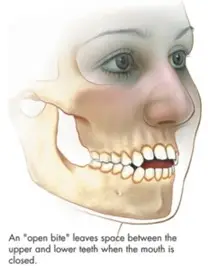
Open bite is a type of malocclusion or “bad bite” that occurs when the top and bottom teeth do not properly meet. When your teeth are properly positioned, they will meet all the way across. Open bite patients will not be able to do so, which can start with complications like speech
impediments, problems chewing or biting, and TMJ pain, but may end up with more severe issues like gum disease, tooth decay, digestive issues, and even heart disease.
In many orthodontic cases, an open bite is present due to poor oral habits that come from a patient’s childhood. This includes instances where the patient sucked their thumb or bottom lip, used a pacifier for too long, or tongue-thrusted when swallowing food. Sometimes, a patient’s genetics will be the cause of their open bite.
In most cases, an open bite can be corrected by orthodontic treatment. Your orthodontist will use braces or Invisalign aligners to slowly move your teeth and jaw into the proper position. This will allow you to close your jaw properly, meaning speaking, brushing, chewing, and digesting will get easier.
Signs and Symptoms of Open Bite
The most obvious sign of an open bite is its aesthetic, where your top teeth and bottom teeth do not touch. This can lead to poor self-esteem, issues speaking, and can cause wear and tear to the teeth.
However, there are other signs you should be aware of, including:
- Receding jaw
- TMJ pain and headaches
- Trouble biting, chewing, or swallowing
- Snoring or sleep apnea
- Unbalanced or asymmetrical appearance
How Do I Know If I Need Jaw Surgery for Open Bite?
If any of the symptoms presented above are too severe to be corrected by orthodontic treatment alone, your dentist or orthodontist will recommend you for orthognathic treatment. However, you will still need orthodontic treatment following surgery to fine-tune your jaw’s position.
What Happens If I Don’t Treat My Open Bite?
Since your mouth is one of your body’s first lines of defense against bacteria, keeping it healthy is imperative to a healthy lifestyle. Not treating orthodontic conditions like open bite will only cause them to get worse.
For patients with open bite, this can mean your teeth and jaw can get even further out of position. This can then lead to more pain, future diseases of the gums and mouth, and can cause more severe health issues like heart disease, diabetes, strokes, rheumatoid arthritis, and more.
How Does Jaw Surgery Correct an Open Bite?
To correct an open bite, your oral surgeon will remove pieces of bone to position your upper and lower jaw into proper alignment. Certain cases will only require work on one jaw, but most open bite cases will require both jaws to be corrected. This can lead to operation times of 4+ hours, but the results will be more than worth the time.
Using precise movements planned with virtual surgical software, your surgeon will make small incisions in your jaw, remove the adequate amount of bone, then use dental hardware to affix the jaw back into place. Once completed, your jaw will be in proper alignment. Any remaining orthodontic treatment you have left will be designed to fine-tune your teeth and jaws to make sure your smile is happy and healthy.
What Happens After My Jaw Surgery?
Immediately after jaw surgery, you will be transported to a hospital or outpatient facility, where you will remain under the guidance of medical professionals as you recover. You will stay 1-2 nights receiving medication and IV fluids. Once you are cleared, you will return home and continue to recover from surgery.
You will also likely continue with orthodontic treatment for a period, as your braces or Invisalign aligners fine-tune your smile. On the other side of your recovery and orthodontic treatment plan is the healthy, happy smile of your dreams.
Overbite – Before and After Jaw Surgery
Before
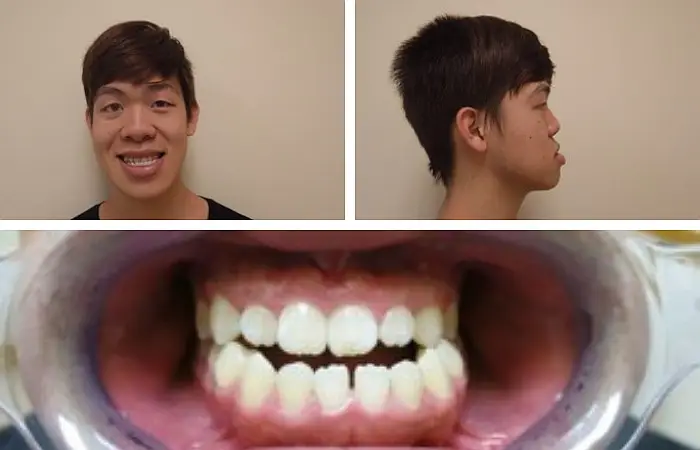
After
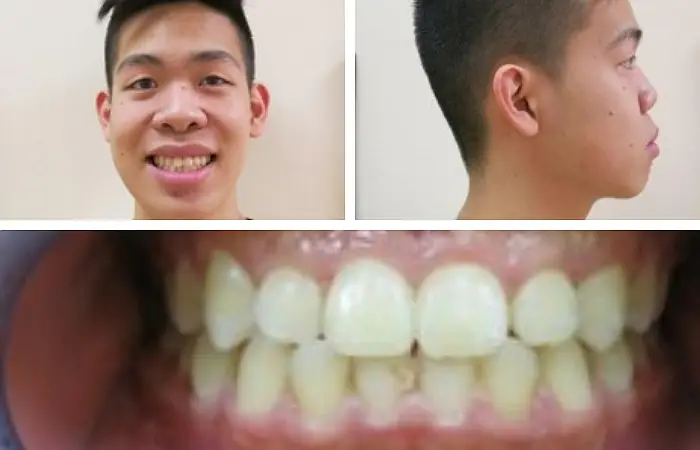
FAQs
Yes – since an open bite is a condition that is caused by a
misplaced jaw, it can lead to TMJ pain. To cure TMJ pain caused by an open bite, you can undergo orthodontic treatment or orthognathic surgery.
Yes – and for the better. Orthognathic surgery will correct
your open bite, correctly align your teeth and jaws, and properly balance your face.
Yes – your voice will undergo changes due to it being
properly positioned. Since open bite affects speech due to improper jaw position, you may now find it easier to annunciate certain words or phrases thanks to your healthy mouth.
It can take up to 12 weeks to fully heal from jaw surgery.
After 6 weeks, your mouth will likely be back to “normal,” but you will still require further orthodontic treatment to fine-tune your smile which can take another 6 weeks.
There is a chance that your jaw will need to be wired shut
for 6-8 weeks following surgery. However, it is not a guarantee. Your doctor will let you know if your jaw will need to be wired shut after your surgery.
You can start to open your mouth 10-14 days after surgery – but
only a small distance. Do NOT attempt to open your mouth fully
during this period following jaw surgery. Your surgeon will likely give you directions on how to ease your way back into a normal range of motion.
Yes – many insurance companies cover orthognathic surgery as part of their plan. Click here to learn more about how you can use insurance to pay for orthognathic treatment.
